Decade of Centenaries County Donegal
Culture Divison, Donegal County Council
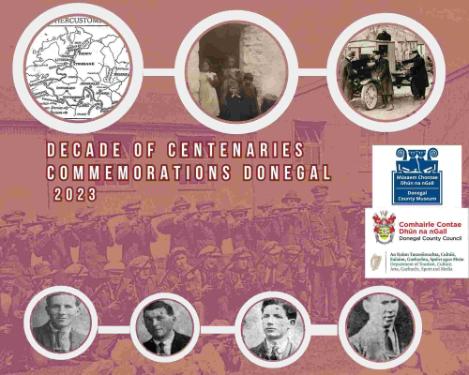
Decade of Centenaries Publication, Radio Documentaries and Podcasts
The Museum in association with the Archives Service will create a publication highlighting the work undertaken on the Decade of Centenaries since 2012 particularly exploring the untold stories which have been uncovered.
Working with Highland Radio, the Museum will also produce a series of 4 radio documentaries and podcasts which will explore Donegal stories from the Decade of Centenaries.
Digitisation
The County Archives will arrange the digitisation of records from Ballyshannon, Milford and Stranorlar Rural District Councils covering the first two decades of the 20th century. Once digitised these records will be accessible on-line.
Drumboe 100
The Museum has developed a bilingual touring exhibition telling the story of the 4 men who were executed at Drumboe Castle on the 14th March 1923.
Funding was provided to produce a play written by Kieran Kelly which will explore the story of the Drumboe Martyrs. The play was be performed in the Balor Theatre, Ballybofey in October 2023.
Library Programme
The Library programme included, Historical Walks; a Lecture Programme; a Junior Summer Camp and a History Roadshow entitled Just for Kids. During Wainfest Children’s Arts and Book Festival there will be a workshop with historian Dave Swift focussing on the uniforms and equipment of the Irish War of Independence; storytelling workshops with Dark Daughter productions focussing on the contribution of women; a series of talks by Dr Angela Byrne explaining the establishment of the various institutions of the Irish Free state and interactive sessions with Irish children’s authors Anna Carey, Siobhan Parkinson and Brian Gallagher.
The Department of Tourism, Culture, Arts, Gaeltacht, Sports and Media works with stakeholders to support and facilitate commemorative actions and events under this initiative, with local authorities including Donegal County Council holding a key partner role in coordination, planning and delivery of the programme.
For information contact Donegal County Museum, High Road, Letterkenny, Co Donegal T 074 9124613 E [email protected]
DRUMBOE 100 Wreath Laying Ceremony
On Sunday 5th March, over 100 people attended a formal wreath laying ceremony commemorating the centenary of the executions of Charlie Daly, Daniel Enright, Timothy O’Sullivan and Séan Larkin at Drumboe Castle, Stranorlar, Co Donegal on the 14th March 1923. It was held opposite the field in which the original Drumboe memorial is situated. This ceremony was organised by Donegal County Council and Donegal County Museum as part of County Donegal’s Decade of Centenaries Commemorations.
The Civil War lasted from June 1922 to May 1923. In Donegal, Pro-Treaty forces had control of the County but not without resistance from the Anti Treaty side. By the beginning of 1923, with many of their followers under arrest and with a general lack of support, it became clear that the Anti Treaty Forces had little chance of success. At the beginning of November 1922, the Anti-Treaty HQ in Dublin ordered their forces to evacuate Donegal. On the 4th November, eight Anti-Treaty men were captured near Dunlewey and held in Drumboe Castle. They were charged with possession of rifles and other ammunition. The men were found guilty by court martial in January, but sentence was not passed. Under the provisions of the Public Safety Act, it was known that there was a possibility the men would be sentenced to death. Similar executions were happening across the country. On 10th March, Captain Bernard Cannon, a Pro-Treaty officer, was killed in Creeslough and orders were received in Drumboe Castle to execute four men. At 7 am on 14th March 1923 Charlie Daly, Timothy O’Sullivan, Daniel Enright and Seán (Jack) Larkin were executed by firing squad.
This formal wreath laying ceremony acknowledged these events with sensitivity and respect. Attendees were welcomed by Cllr Liam Blaney, Cathaoirleach Donegal County Council who highlighted the work of the Culture Division -
“This, the last period of commemoration, is the most difficult for us. We have commemorated the 1916 Rising, World War One, the impacts of Partition, and the War of Independence. We are now endeavouring to commemorate the terrible months of the Civil War in an inclusive and empathetic manner.
Donegal County Council has been to the forefront of commemorating the events of the Decade of Centenaries in our County, particularly through the work of the Culture Division which comprises Libraries, Archives, Museum, Arts, the Heritage Office and the Regional Cultural Centre. For over a decade, these services have worked with communities and organisations to produce artwork, exhibitions, events, historical research, heritage and library materials, publications and education programmes, which have been delivered to communities throughout the County.
In this year, the final year of the ‘Decade’, the Culture Division will complete this work of providing communities with the opportunity to remember and explore the past with respect and understanding for all traditions. “
Minister for Agriculture, Food and the Marine, Charlie McConalogue TD who represented the Government at this ceremony gave an address in which he stated;
“On this weekend in particular it is vitally important that we commemorate with sensitivity and respect, as we remember the 4 men who were executed at Drumboe in March 1923, Charlie Daly, Timothy O’Sullivan and Daniel Enright, who were from Co Kerry, along with Sean Larkin, from Co Derry .
The violence that was waged as part of Ireland’s Civil War and its outcome, was an appalling human tragedy for so many Irish families. Its legacies were many and left scars on succeeding generations, unhealed for decades. Both sides of the conflict carried out brutal acts: anti-Treaty forces killed a TD and several pro-Treaty politicians and burned many homes of Free State supporters, while the government officially executed 81 anti-Treaty prisoners. Many civilians also died during this brutal period in our history. The estimated total death toll for the Civil War is between 1,500-2,000 people.
A century on, we are in a better position to seek to explore the fullness of the history of the period, doing so with courage and a sense of inclusiveness. We have an opportunity to construct a future for all who want to call this island home, with our diverse histories and memories all respectfully taken into account.
The process of ethical remembering, the reflections we have made throughout this Decade of Centenaries, can help all of us in our journey together, towards a shared future that is marked by inclusivity, diversity, possibility, and a sharing of memory in conditions of peace – in a diverse country of which we can all be proud.”
Short Prayers, Readings, poetry and a jointly performed blessing were given by Very Rev Kieran McAteer, PP Stranorlar Parishes and Rev Adam Pullen, Rector of Stranorlar Church of Ireland. Members of the local Ballybofey & Stranorlar District Historical Society - Gerard Doherty, Mary Henderson, Donal MacCionnaith & Declan Collum read the last letters written to their mothers by Charlie Daly, Daniel Enright, Timothy O’Sullivan and Séan Larkin.
The ceremony concluded with the Wreath laying. Minister McConalogue laid a wreath on behalf of the Government, Cllr Liam Blaney, Cathaoirleach Donegal County Council laid a wreath on behalf of Donegal County Council , relatives of Charlie Daly and of Seán Larkin laid wreaths and Judith Mc Carthy, County Donegal Decade of Centenaries Coordinator and Caroline Carr, Donegal County Museum laid wreaths for Daniel Enright and Timothy O’Sullivan. The ceremony concluded with a piper playing the ‘Limerick Lament’.
'DRUMBOE 100' Exhibition
To commemorate the 100th anniversary of the execution of Charlie Daly, Seán Larkin, Daniel Enright and Timothy O’Sullivan at Drumboe Castle , Stranorlar , Co Donegal on the 14th March, 1923, Donegal County Museum, Culture Division, Donegal County Council is opened their exhibition ‘Drumboe 100’ in the Twin Towns Library in Stranorlar, .
The exhibition tells the story of the arrest and Court Martial of Charlie Daly, Daniel Enright, Timothy O’Sullivan and Séan Larkin, their execution, and its aftermath.
The Civil War lasted from June 1922 to May 1923. In Donegal, Pro-Treaty forces had control of the County but not without resistance from the Anti Treaty side. By the beginning of 1923, with many of their followers under arrest and with a general lack of support, it became clear that the Anti Treaty Forces had little chance of success. At the beginning of November 1922, the Anti-Treaty HQ in Dublin ordered their forces to evacuate Donegal. On the 4th November, eight Anti-Treaty men were captured near Dunlewey and held in Drumboe Castle. They were charged with possession of rifles and other ammunition. The men were found guilty by court martial in January, but sentence was not passed. Under the provisions of the Public Safety Act, it was known that there was a possibility the men would be sentenced to death. Similar executions were happening across the country. On 10th March, Captain Bernard Cannon, a Pro-Treaty officer, was killed in Creeslough and orders were received in Drumboe Castle to execute four men. At 7 am on 14th March 1923 Charlie Daly, Timothy O’Sullivan, Daniel Enright and Seán (Jack) Larkin were executed by firing squad.
The violence that was waged as part of Ireland’s Civil War and its outcome, was an appalling human tragedy for so many Irish families. Its legacies were many and left scars on succeeding generations, unhealed for decades.
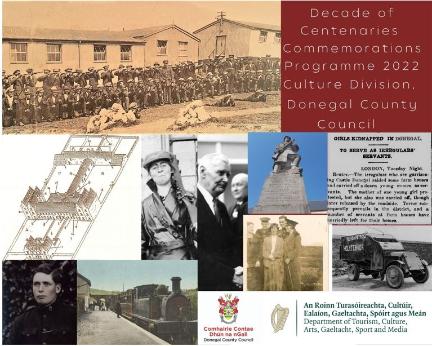
During 2022, the Culture Division, Donegal County Council continues to commemorate the Decade of Centenaries. The Culture Division has secured funding of €57,500 under the Decade of Centenaries Initiative 2012-2023 to deliver the Decade of Centenaries Programme for 2022.
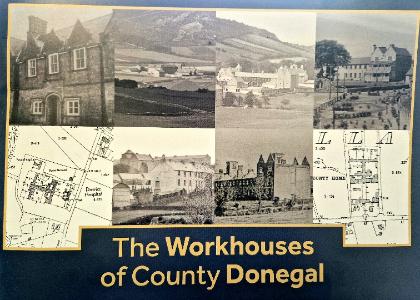
Donegal County Museum in association with the County Archives Service created this booklet on the history of the Workhouses of
County Donegal using the Workhouse records held in the Donegal Archives and various other sources.
Workhouses were synonymous with the purported social care system that existed in Ireland prior to Independence, but their role
in society has often been overlooked or misunderstood. In this booklet we explore the early years of the Donegal Workhouses and
examine the final years of the Poor Law system.
The records of the Donegal Workhouses are a truly invaluable source for the study of the local, family and academic history of
Ireland, from the era of the Great Famine through to the foundation of the Irish Free State in 1922.
We wish to acknowledge and to thank all those who contributed to this publication;
Judith Mc Carthy, Donegal County Museum, Culture Division, Donegal County Council
Caroline Carr, Donegal County Museum, Culture Division, Donegal County Council
Dr Niamh Brennan, Donegal County Archives, Culture Division, Donegal County Council
Una Matthewson, Donegal County Library, Culture Division, Donegal County Council
Dr Ben Rogers, County Archives/Museum Historian in Residence for the Decade of Centenaries 2021
Dr Arlene Crampsie, School of Geography, UCD
Daragh McDonough, IS Project Leader (GIS), Donegal County Council
Read the 'Workhouse of County Donegal' Booklet here
Workhouses of County Donegal booklet
Hard copies are available in Donegal County Museum and in DonegalCounty Archives.
Lending copies will be available in Donegal Studies sections of the County Libaries.
The Workhouse is synonymous with the purported social care system that existed in Ireland prior to Independence, but its role in society has often been overlooked or misunderstood. By using the plans for workhouses devised by George Wilkinson in the 19th century and the Conservation report undertaken for Ballyshannon Workhouse, Donegal County Museum and the Archives Service have created the first ever virtual reconstruction of Ballyshannon Workhouse, as it would have appeared in the early twentieth century. With this virtual workhouse we capture a moment in time when the Workhouse system was still in use prior to the changes which resulted in the aftermath of the Revolutionary Period.
By using the plans for workhouses devised by the Poor Law Commissioners Architect George Wilkinson in the 19th Century and the conservation report undertaken for Ballyshannon Workhouse, Donegal County Museum and the Donegal Archives Service of the Culture Division, Donegal County Council commissioned Virtual Teic to create this virtual Walk Thru reconstruction of Ballyshannon Workhouse as it would have appeared in the early 20th Century. This Virtual Workhouse Walk Thru captures a moment in time when the Workhouse system was still in use prior to the changes which resulted in the aftermath of the Revolutionary Period.
View here
The Battle of Pettigo/Belleek, took place along the Donegal /Fermanagh Border in late May, early June 1922 in the period between the War of Independence and the Civil War. It was the last time that Pro and Anti Treaty Forces fought side-by-side against British forces. It was part of Michael Collins's Northern Offensive, which was intended to destabilise the Unionist state, and was also a reaction to sectarian violence against nationalists in the North. This was the only location in Ireland where Irish forces engaged with British forces in a stand-up fight with a defined battle line and the first time since the Easter Rising whenartillery was used in Ireland.
On Saturday 28th May 2022, working on a cross-border basis with Fermanagh County Museum, Donegal County Museum held a commemorative event in Pettigo and Belleek, which included talks by both national and local speakers, the premiere of a specially commissioned animation, part of the Bordering Realities Project, funded by the Creative Ireland Programme, a History Ireland Hedge School and a walking tour of Pettigo and bus tour to and around Belleek. Speakers included Dr Éamon Phoenix, Dr Edward Burke, Dr Margaret O’Callaghan and local historians, Jimmy Baird, John Cunningham, and Pauline Gilmartin.
Commemorative booklet https://www.donegalcoco.ie/media/donegalcountyc/museum/pdfs/Battle%20of%20Pettigo%20and%20Belleek%201922%20Booklet.pdf
Podcast 1
Dr Éamon Phoenix, ‘Raids, Reprisals and the Boundary Question: From the Clones Affray to Craig-Collins Pacts, the Battle of Pettigo and the Civil War, 1922’
Historian/ Historical Consultant, Broadcaster and Journalist; Member of the Taoiseach’s Expert Advisory Group on Commemorations
https://soundcloud.com/donegal-county-council/dr-eamonn-phoenix
Podcast 2
Dr Edward Burke, ‘Operation Basil: The British Army’s Offensive in Belleek and Pettigo’
Associate Professor in International Relations at the University of Nottingham. Currently undertaking a two-year early career fellowship funded by the UK Arts and Humanities Research Council Fellowship. The title of his research project is, "The Greatest Weight? Paramilitaries, Deterrent Violence and Feud in Ulster's Borderlands since 1920."
https://soundcloud.com/donegal-county-council/dr-edward-burke
Podcast of the Hedge School panel discussion part of the day https://www.historyireland.com/hedge-schools/
Here is the link to the Film Northern Offensive – The Battle of Pettigo and Belleek – 100 Years film https://www.youtube.com/watch?v=-iOItlWB7VQ
Renowned Donegal poet, Ms Annemarie Ní Churreáin has been appointed as Decade of Centenaries Artist in Residence at Donegal County Archives for Summer and Autumn months of 2022.
Buncrana and Bundoran Urban District Council Minute books, 1919 – 1923:Local authorities were critically important in the revolutionary years. Among the many issues they had to face were, the implementation of the 1920 Government of Ireland Act which created the Border; continuing local duties during the War of Independence, including organising the critical local elections of 1920, dealing with compensation claims, rates and the vagaries of the local economy; supporting or rejecting the Anglo-Irish Treaty and the Provisional Government and the abolition of the Poor Law system. The minutes of meetings of Buncrana and Bundoran Urban District Councils reflect all these challenges.
https://www.donegalcoco.ie/culture/archives/local%20authority%20archives%20digitised/
Podcast Series here
https://soundcloud.com/donegal-county-council/sets/decade-of-centenaries-commemorations-podcast-2022
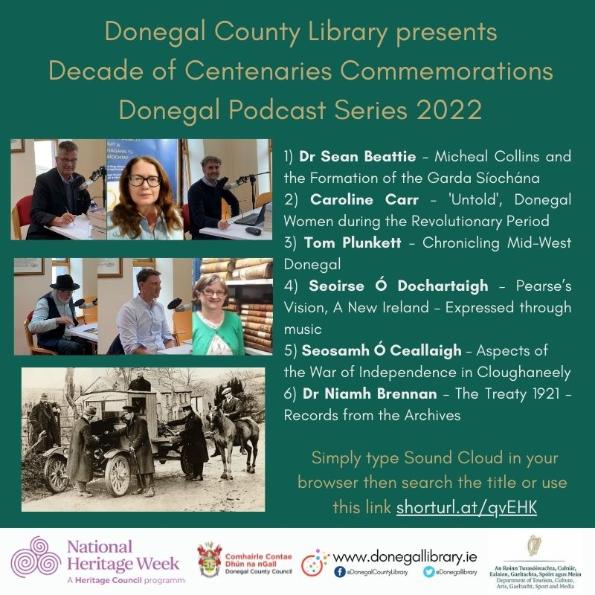
Poetry Event
 (002) (002).png resized.jpg)
---------------------------------------------------------------------------------------------------------------------------------------------------------------------------------------------------------------------------------------------------------------
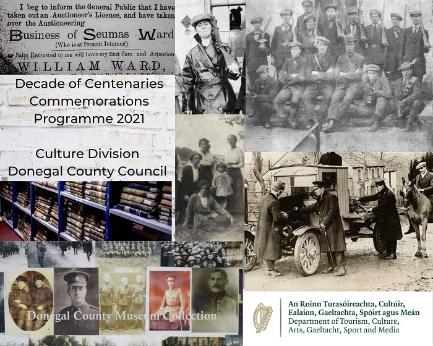
Enjoy a Virtual Tour of this major Decade of Centenaries exhibition by Donegal County Museum, Culture Division, Donegal County Council which focuses on the years 1919-1925 in County Donegal. The exhibition topics range from the War of Independence, the Civil War to Partition, the work of the Boundary Commission and the Border, all of which had a significant impact on life in County Donegal and the North West.
Donegal County Museum’s Decade of Centenaries programme recognises that the period from 1912 to 1923 is perhaps one of the most important in Irish history. The events that occurred during this decade transformed the island of Ireland and have had a lasting impact on Irish politics and society, right up to the present day.
This Virtual Tour was funded by the Department of Tourism, Culture, Arts, Gaeltacht, Sports and Media under the Community Strand of the 2021 Decade of Centenaries programme as part of the Decade of Centenaries Initiative 2012-2023.
See the Virtual Tour here
In 2021, the Culture Division delivered 8 engaging and informative projects exploring the history of the Decade of Centenaries in County Donegal.
Margaret Hannon was commissioned to work with the Donegal County Archives Service and the Donegal County Museum as Artist in Residence to create a piece of new artistic work in response to their collections of material pertaining to the period 1919-1923. Maggie is an actor, writer and theatre maker who most recently wrote and performed her one woman show, Sister Black. The result of her residency is a drama which tells the story of a grieving woman who has a series of encounters with ghosts from the Decade of Centenaries who challenge her preconceptions of the past. The drama will be performed in November - Covid -19 restrictions permitting.
MacConmara Heritage Consulting was appointed to undertake an audit of publically accessible memorials relating to the Decade of Centenaries 1919-1923. They undertook a public consultation process as well as in-depth research which has resulted in a comprehensive audit including a report and database. The project included memorials relating to the War of Independence, Civil War and WWI. Its completion provides us with a powerful resource to interpret how events of a century ago – sometimes contentious, sometimes unifying - have been remembered ever since. Across Donegal, 81 different memorials were identified.
Dr Ben Rogers was commissioned to work with the Donegal County Archives as Historian in Residence. Dr Rogers is currently based in the School of History in University College Dublin. He carried out research on two of the County Archives Collections , The Joseph Murray Collection and selected Rural & Urban District Council minute books from 1918 – 1925. The outcome of the research is six published essays and a series of on-line talks.
The Library Service organised a series of on-line lectures delivered by both local and national experts exploring a variety of themes connected to the revolutionary period. The series ran from June to September. Speakers included: Liz Gillis, Myles Dungan and Sinead McCoole whose lectures were performed live on-line; Professor Edward Burke, Assistant Professor in International Relations at Nottingham University and Dr Niamh Hamill of the Institute of Study Abroad; and local historians Helen Meehan, Kieran Kelly and Seosamh O Ceallaigh; whose talks were premiered on the Donegal County Council YouTube channel and are available to view at any time.
Ann Quinn was commissioned to create two paintings reflecting on aspects of life in Donegal during the period 1919 to 1923. In 2020 Ann received an Artist Bursary Award from the Arts Council of Ireland and has previously exhibited in galleries throughout Ireland and at the RHA Annual Exhibition every year since 2004. She works from her own artist’s studio at Ballylennon, St Johnston, Co Donegal. The theme of both paintings is Donegal women and Donegal homes, during the period 1919-1923. The artist’s aim was to create a bridge between the present and the past by using a real life model in the present Donegal landscape.
'Legnathraw', oil on canvas, 80 x 100cm, 2021 is based on an old house in the small townland of Legnathraw, outside St. Johnston. The painting is set in Summer.
'Meenagrauv', oil on canvas, 80 x 100cm, 2022 is based on an old cottage in the townland of Meenagrauv outside Stranorlar. The painting is set in Winter.
Donegal County Museum worked with Paul Marshall of Visual Arts Media to develop a virtual tour of its exhibition From Conflict to Division, Donegal 1919-1925. This virtual tour enables people to access the exhibition from anywhere in the world. It includes a 360 degree tour of the exhibition with the ability to zoom in on each exhibition panel as well as on a select number of artefacts in the exhibition. The virtual tour will be made available through the Council website.
In October, during Wainfest Children’s Festival, the Library Service organised a number of events on the theme of the Decade of Centenaries. These included talks by authors Ann Murtagh and Brian Gallagher and historians Liz Gillis and Ida Milne. There were educational live online presentations by John D Ruddy, Creator of the YouTube history series Manny Man Does History and by Michael Moylan of Irish History Live.
The Museum developed an on-line database containing all the listings published in the County Donegal Book of Honour, The Great War 1914-1918 with additional information researched by the Museum. The searchable database contains information on each person from Donegal who died as a result of the War including, name, service number and place of birth. The database can be updated as new information is uncovered and will be publically accessible through a link on the Museum webpage.
To view the database visit https://donegalgreatwardead.com/index.aspx or https://donegalgreatwardead.ie/index.aspx
Donegal County Museum and the RCC are also collaborating on the 'Bordering Realities' project led by Monaghan County Council, which will see the delivery of 5 animated films, exploring stories from the Decade of Centenaries in Donegal, Monaghan, Derry, Armagh and Fermanagh.
Donegal County Council Library Service announced their first ever digital (online) lecture series exploring the themes of the Decade of Centenaries. This free lecture series ran from June to September and consisted of indepth and engaging lectures by highly regarded historians, focusing on the everyday experience of ordinary people living in extraordinary times and and encompassing the different cultural, political and religious traditions throughout the island of Ireland.
The following lectures are available to view online on the Donegal County Council YouTube Channel i
Kieran Kelly, author and local historian- ‘From Nationalism to Republicanism - Letterkenny in the Decade of Change’
https://www.youtube.com/watch?v=w5yH7Jpt9pc&list=PLDfj6YPUFQtuzFgF8BVpJDdtIq-JjdyVX&index=2
Professor Edward Burke, Assistant Professor in International Relations, Director of Conflict, Security and Terrorism, Faculty of Social Sciences at Nottingham University - “Closing the Gates: Loyalist Paramilitaries and Resistance in County Donegal, 1920-1923”
https://www.youtube.com/watch?v=qpshe-OdLP0&list=PLDfj6YPUFQtuzFgF8BVpJDdtIq-JjdyVX
Helen Meehan ,author and local historian - “The History and legacy of Cumann na mBan in Donegal”
https://www.youtube.com/watch?v=DqlXzwgjjqg&list=PLDfj6YPUFQtuzFgF8BVpJDdtIq-JjdyVX&index=4
Thursday 23rd September at 7.00pm
Dr Niamh Hamill (author and historian) “Broken Promises – Nationalism, Gender and the New Republic’
https://www.youtube.com/watch?v=ld3yizZHxVI&list=PLDfj6YPUFQtuzFgF8BVpJDdtIq-JjdyVX&index=3
Seosamh O Ceallaigh. author and local historian - ‘The War of Independence in Cloughaneely’
https://www.youtube.com/watch?v=sYfWvgOv5g8&list=PLDfj6YPUFQtuzFgF8BVpJDdtIq-JjdyVX&index=5
For further information on all these Decade of Centenaries lectures contact the Central Library, Letterkenny on 074 9124950.
You can also follow Donegal County Library on Facebook and Twitter.
Donegal County Museum, the Regional Cultural Centre and the Museum and Heritage Service of Derry City and Strabane District Council commissioned and produced a series of six short video pieces which highlight the experiences of women during the Revolutionary Period (1919-1923). These videos provide snapshots of the period, exploring the stories of women during the struggle for Irish independence.
The Donegal video pieces highlight the varied experiences of local women.
The first video features Eithne Coyle, an active member of Cumann na mBan. During the War of Independence she carried out a one woman campaign holding up trains, seizing goods and burning British newspapers. In September 1922 she was arrested and remained in jail until the end of the Civil War. She was President of Cumann na mBan between 1926 and 1941.
The second video features Mary Ballantine who was married to Head Constable Joseph Ballantine of the Royal Irish Constabulary. In May 1922, Joseph who had just retired from his position was shot and killed at his home in Raphoe.
The third video features Rose Ann Logue, an Instructress with the Congested Districts Board, who was held up by two armed and masked men who threatened her and cut off her hair.
The Derry films feature Lady Lillian Spender on a tour along the newly-established border in June 1923. Lady Spender describes in her diaries events along the Border in places such as Clady and Pettigo.
To view the Donegal films visit:
Women's Voices From The Past - Revolutionary Times
Or https://www.facebook.com/Donegalcomuseum
To view the Derry Films, visit www.facebook.com/towermuseum/
The video pieces were produced by Dark Daughter Productions with videography by Oath Film Studio. Use of the Diaries of Lillian Spender is by courtesy of the Public Record Office of Northern Ireland.
These videos have been supported by the Department of Tourism, Culture, Arts, Gaeltacht, Sport and Media under the Decade of Centenaries 2012-2023 initiative.
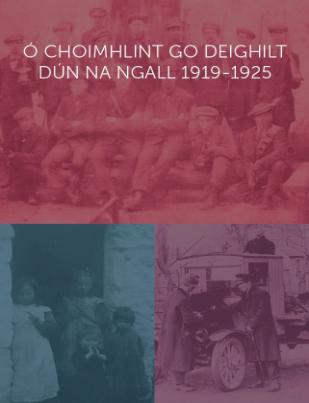
Donegal County Museum has written and produced a fascinating new booklet entitled “From Conflict to Division: Donegal 1919-1925” which explores the story of the War of Independence, Partition, and the Civil War in County Donegal.
The period 1912 to 1923 is perhaps one of the most important in Irish history. The events that occurred during this decade transformed the island of Ireland and have had a lasting legacy on Irish politics and society, right up to the present day. In the 100 years since, the lines between fact and myth have become blurred and the true story of the revolutionary years was buried but not forgotten. The booklet highlights some of the events from this period that impacted the people of Donegal.
This bilingual booklet was supported by the Department of Tourism, Culture, Arts, Gaeltacht, Sport and Media under the Decade of Centenaries 2012 -2023 Initiative and by the Creative Ireland Programme 2017-2022.
This free booklet is available online and can be downloaded from Donegal County Museum website see
https://www.donegalcoco.ie/culture/countymuseum/publications/
A limited number of hard copies are available from Donegal County Museum.
Donegal County Museum High Road, Letterkenny,Co Donegal
E [email protected] T 074 91 24613
The Culture Division of Donegal County Council will deliver the following programme of activities in 2020 as part of the Decade of Centenaries Commemorations. These activities have been supported by the Department of Tourism, Culture, Arts, Gaeltacht, Sport and Media under the Decade of Centenaries 2012-2023 initiative.
-min-558x396.jpg)
The Archives Service will digitise and make available on-line the bound volumes of the minutes of meetings which are currently stored in the Archives repository in Lifford. These archives are the minutes of meetings of County Donegal’s ten Rural District Councils, during the aftermath of the 1916 Rising, the 1918 General Election, War of Independence, partition, Civil War and early years of the Irish Free State, 1918 - 1925.
For further Information please contact
Three Rivers Centre
Lifford
Co. Donegal
F93 PN3H
Tel: 074 9153900
Email: [email protected]
Donegal County Museum will deliver a booklet on the theme of the Decade of Centenaries focussing on the current centenaries – War of Independence; Partition; and the Civil War, as they relate to County Donegal. The booklet will promote a wider understanding of these historical events and their impact in Donegal. It will explore the story from all perspectives and highlight the events of the period using both local and national resources.
For further information, please contact
High Road
Letterkenny
Co. Donegal
F92 K123
Tel: 074 9124613
Email: [email protected]
The Regional Cultural Centre working with Dark Daughter productions will deliver a series of Cross Border video pieces which explore the experiences of women during the Struggle for Independence and the changing role of women in society during the revolutionary period. The video pieces will highlight a previously unexplored aspect of our history and will be presented in a format accessible to a wide audience.
For further information, please contact
Regional Cultural Centre
Cove Hill, Port Road
Letterkenny
Co. Donegal
Email: [email protected]
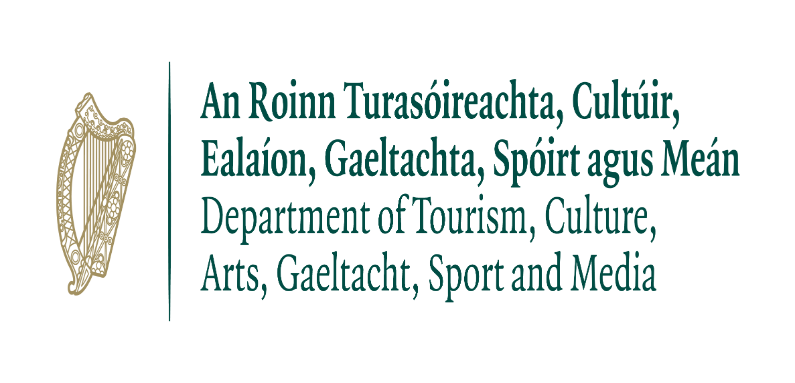
Donegal 2016 saw see an extensive programme of events and activities delivered across the county to commemorate the event of the 1916 Rising, to relfect on our achievements over the last 100 years and to look towards our future.
Download the Donegal centenary Programme.
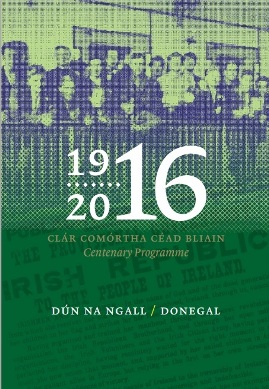
Funding to support inclusive and appropriate community participation in the commemorations of the 1916 Rising.
As part of the 2016 Easter Rising Centenary commemorations Donegal County Council's Archives, Library, Museum and Heritage Office has produced an education pack, a 64 page illustrated booklet giving an overview of the history of the county of Donegal in that year, and 19 facsimiles of archives and photographs with questions and exercises for students.
The printed version of the pack will be available to schools and individuals interested in this subject from late January 2016.
Copyright remains with Donegal County Council, and all other owners of images contained in the pack; and they cannot be reproduced without prior permission. The pack can be printed off and used for schools or for private research.
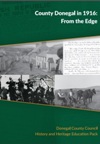 |
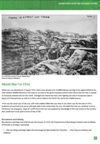 |
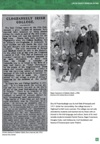 |
| Donegal in 1916 | Donegal in 1916 | |
|
|
|
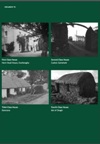 |
| Donegal in 1916 | Donegal in 1916 |